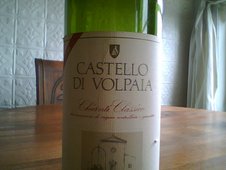Big Vodka continues to breed the worst habits among drinkers, convincing them that the most desirable qualifier in liquor is "smooth," that a 17th distillation actually means something, and inundating than with ludicrous, infantilizing new flavors like marshmallow.
But a happier trend can be found among America's craft distillers, which have in the past couple years have emphasized their vodkas' source material and provincial bonafides. Message: our vodka tastes like something and has, perhaps, a terroir of sorts. Vodka is still vodka, of course, but this embrace of specificity, instead of packaging, is certainly a step in the right direction.
Here is a brief article I wrote for the December 2011 issue of GQ about three of the newer, better vodkas out there.
This Year, the Choice Is Clear
For the last decade or so, the badge of honor in the vodka world was how many times you distilled. Three times, five times, ten. The more flavorful rough edges sanded off, the better. It was a breakneck race toward smooth, anonymous nothingness. Not any longer. The best new American craft vodka makers want to actually taste like something. Taking a tip from locavore trends, they proudly trumpet the provinciality and specificity of their source material. Here are three small-batch vodkas you won't mistake for one another.
BOYD & BLAIR, Glenshaw, PA. Made from local spuds, this vodka is rich, round, creamy and slightly sweet. The savvy B&B recently made a play for bartenders' hearts by releasing the 151 Professional Proof, perfect for infusions. (Don't worry: Consumers can buy it, too.) ($32)
DRY FLY VODKA, Spokane, WA. Dry Fly is one of a number of vodka distillers that now boast of using wheat from local farmers. Fashioned in a German-made pot still, it's a lightly bready, balanced, understated dram. ($32)
SPIRIT OF THE HUDSON, Gardner, NY. Long before wine, whiskey and summer homes took over, the Hudson Valley was known for its apple orchards. That's what Tuthilltown uses to make this light, unusual and appealingly fruity spirit. If there's a way to drink an Appletini without shame, this is it. ($35)
—Robert Simonson



No comments:
Post a Comment